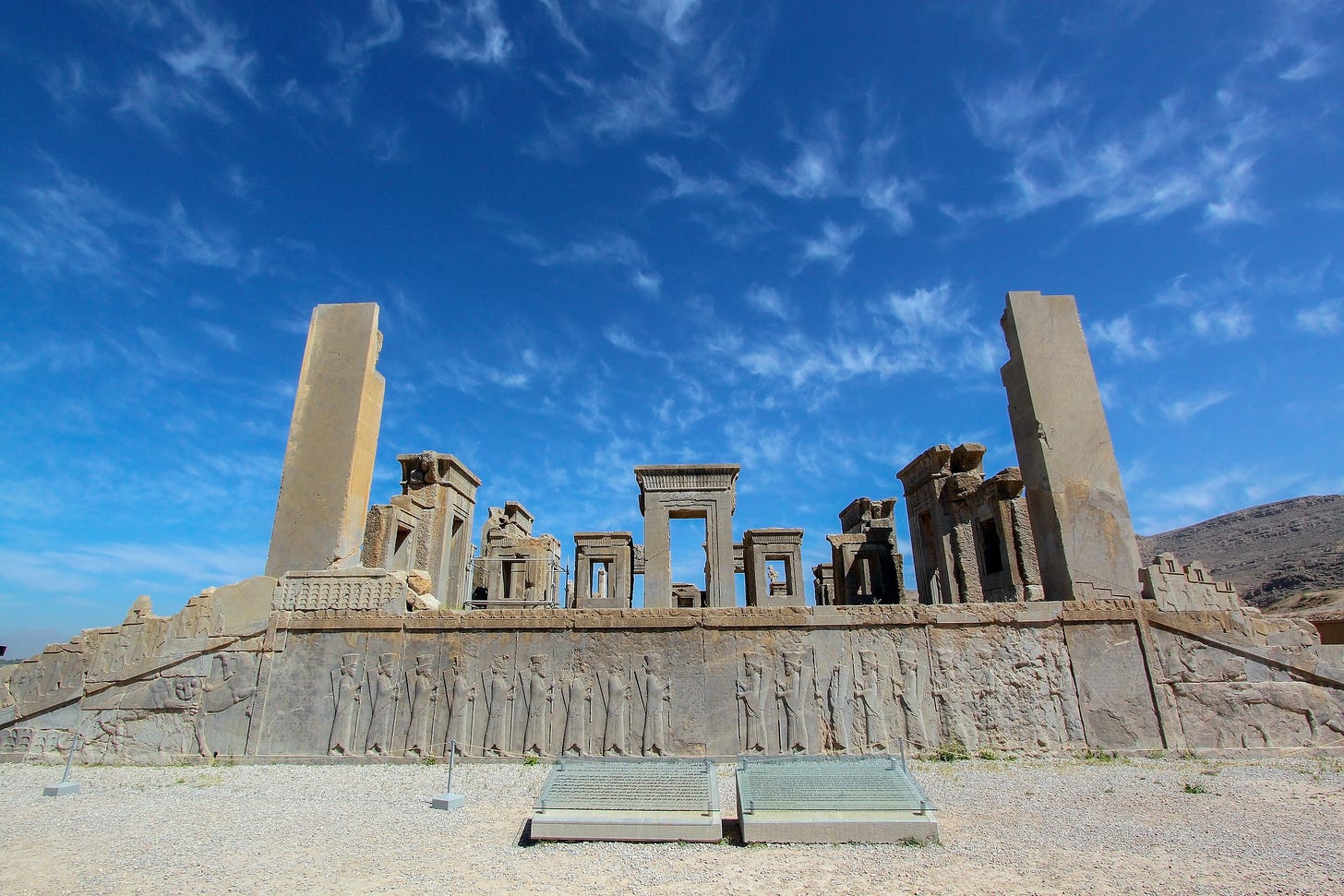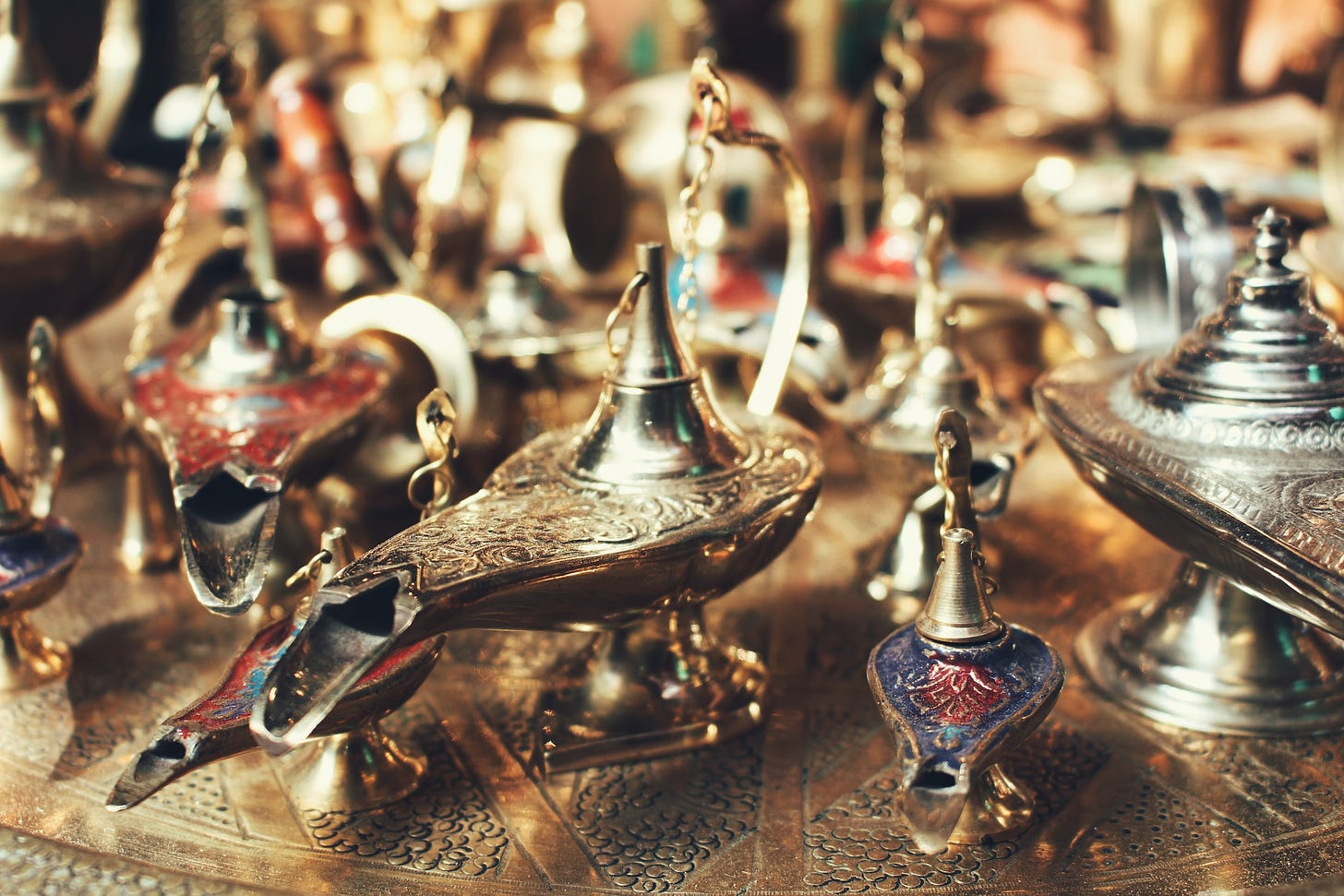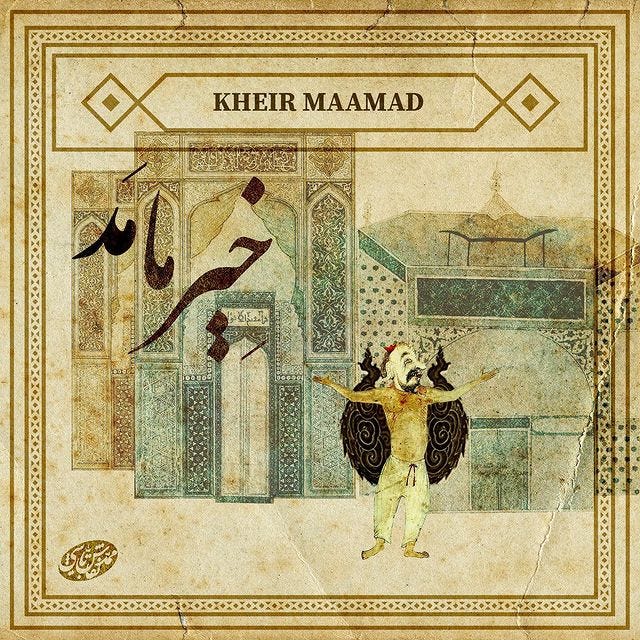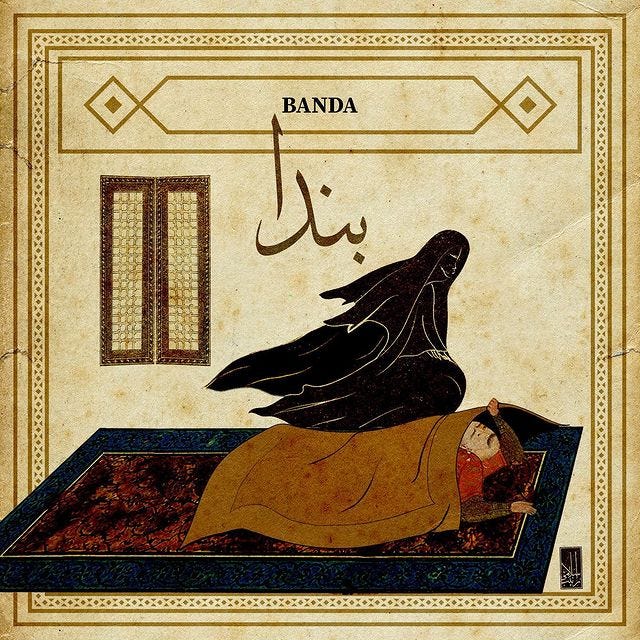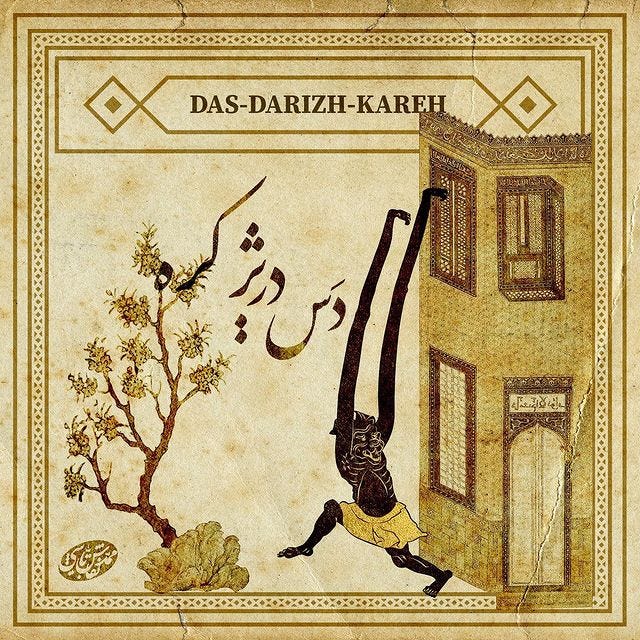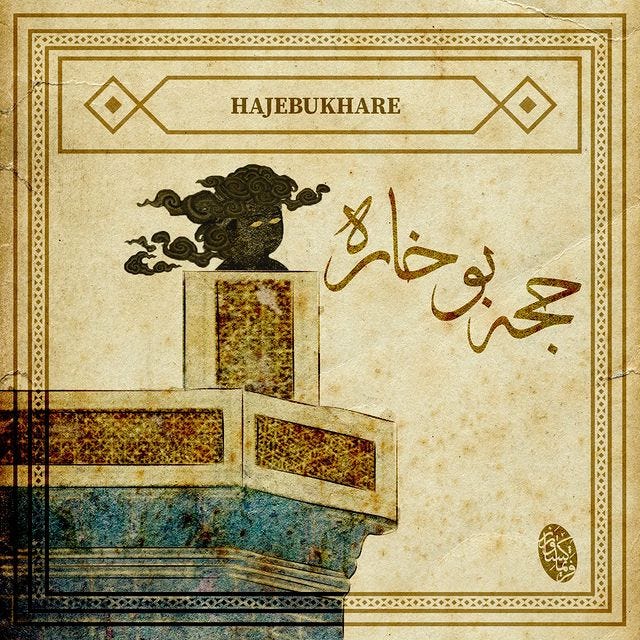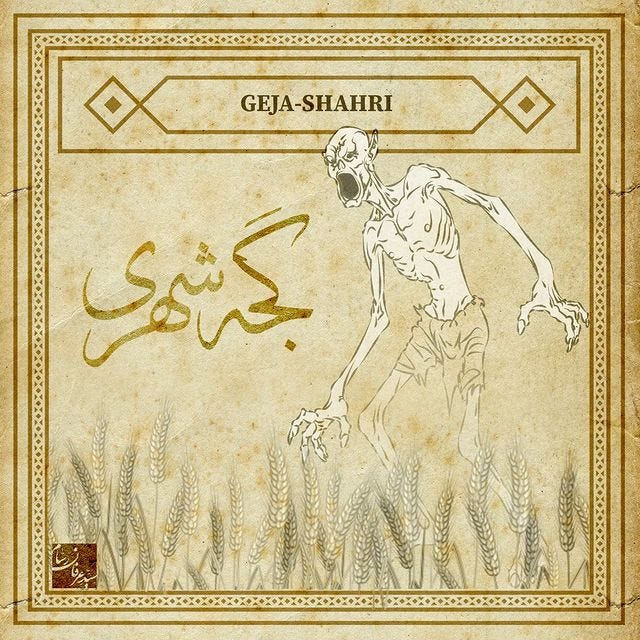Original link: https://sehseh.substack.com/p/e3a
According to legend, the ancient Persian palace “Persepolis”, which is listed as one of the world cultural heritages, was created by the skillful hand of the elves. (Unsplash)
?The full text is easy to read and share: people will not become ghosts after death, elves will eat children, how do Iranians say ghost stories?
Text / Zhang Yuxuan
Recently, Tainan Art Museum held an exhibition of Asian ghosts and monsters, which attracted a lot of attention , and I happened to turn to some Iranian ghost legends, which is very interesting to delve into.
It is generally believed that Iran is an Islamic country, with only Allah and no other ghosts and snakes. This is actually a big misunderstanding. Since ancient times, the land of Iran has nurtured many rural legends and stories, and ghost stories are no exception; ghost stories are mostly folk stories, reflecting the humanistic customs of ordinary Iranian society, and of course it also reflects With the rich imagination of Iranians.
The ancient Iranians were no strangers to “evil demons and monsters”. The main axis of ancient Zoroastrianism in Iran is that the good gods fight against the evil gods. The winter solstice symbolizes that when the evil forces are at their strongest, everyone hides at home with their families to keep warm, which shows that the ancient Iranians have long imagined that the night is the time when demons and ghosts are haunted. In the famous Iranian epic “Shahnameh” (Shahnameh), there are also many dark creatures, such as the snake king Zahak, who mistakenly believed that two snakes grew out of the shaman’s shoulders and had to eat people every time.
After Islam was introduced into Iran, its supernatural concepts also entered Iran (it is also said that Islam absorbed the concepts of the pre-Islamic era). In the Qur’an, there are many descriptions of the existence of “jinn”. The spirit itself is neutral, not a human but a supernatural being. There are good and bad spirits. The good ones are like “Will Smith” (the movie “Aladdin”). “Actor of the Magic Lamp Wizard), the bad ones are all kinds of strange. In many Iranian tales, the so-called monsters are elves.
There are good and bad elves. The good ones are like the magic lamp elves in “Aladdin”, and the bad ones are all kinds of strange. (Unsplash)
According to the “Encyclopedia of Iran” , it is generally believed that elves are born from smokeless fires. Some scholars even argue that elves are the offspring of Eblis (the demons in the Qur’an) and coexist with other creatures in the world. Some scholars also believe that the elves may be Muslims, because the Prophet Muhammad’s mission was not limited to humans. Because of this, converted elves are considered to be kind and beautiful in appearance, while if they are pagan elves, they are often hideous monsters, or a combination of animals and humans, such as a human lion head, which is likely to be a kind of monster. Elf.
When I asked my Iranian friends about Iranian ghost stories, I noticed a conceptual difference – the ghost stories I read were all about elves, not dead people. But what happens when a person dies? In Taiwan’s ghost culture, ghosts are made by people who have regrets in the world. Lonely ghosts usually have regrets in the world. The living people in this world either transcend them or help them fulfill their wishes. In Iran, however, people become “spiritual bodies” (روح) after death, which is a positive concept, and they don’t play havoc everywhere.
In addition, Iran does not have a ghost moon. The most rampant “times” for elves are Saturday and Tuesday nights — Friday is a day of worship, and it’s reasonable for elves to come out the next night, but I’m not sure why on Tuesday. In fact, the most “dangerous” time of the year is the winter solstice, which Iran calls the night of Yalda. In the Zoroastrian tradition, this night is the longest and the darkest forces are the strongest. Every family will hide in their homes. Gather together to eat and drink poetry.
It’s not difficult to deal with elves. In Taiwan, spells and mahogany swords are used to deal with ghosts. In Iran, the halal words of the Qur’an, “In the name of Allah” (b-ismi-llāhi r-raḥmāni r-raḥīmi) and iron are used. It is said that as long as the iron needle is inserted into the body of the spirit, the spirit can be controlled. As for why it is iron, it is mentioned in the Quran.
The World Walk has important stories you haven’t read yet. We focus on global issues from a gender perspective, complementing stories of dilemma, breakthrough, connection, and change that traditional power perspectives ignore.
Please pay a subscription to become our partner and walk with women around the world.
What do Iranian ghosts eat? Eating children who open the door rashly and do not cover the quilt
There are different anecdotes and anecdotes circulating all over Iran. We may call them ghost stories, but they are actually “elf stories”. Although there are good and bad elves, most of the elves in the Iranian country stories are malicious. One of them is that parents use elves to warn their children not to do certain things. From a social point of view, spiritual stories Not only is it used to scare people or a country legend, but it has a certain educational significance.
For example, there is a kind of elf called “kheir maamad” (خیر مامد), it is said that it looks like a human, has the cheeks of an old man, is naked, wears a pair of trousers, and has black wings, and usually eats garbage for a living. The characteristic of “kheir maamad” is that it will knock on people’s doors at night. If the person who opens the door asks who it is before opening the door, the “elf” will not answer, but if he opens the door without asking, he will eat the person who answers the door. Lose. The story is that people tell children to ask before opening the door, not to rush the door.
The story also reflects an ancient Iranian custom : the protection of private spaces. If you have the opportunity to go to the southern cities, such as Shiraz or Isfahan , in the alleys of these cities, you can see that the door handles of ancient houses are different on the left and right. Usually, the sound of knocking on the left is heavier, and it is for male visitors. . The lighter doorknob on the right is for women to knock on. This is to comply with Islamic etiquette, women need to wear a veil when they see men other than family members. The story of “kheir maamad” also echoes the warning to children not to open doors indiscriminately.
Another story, from Hezar-Masjed in central Khorasan region. There is a female elf called Banda (بندا), who is very ugly and scary. She always wears a black robe, her face is completely covered, only her eyes are exposed, and she lives in the deep mountains. When the weather gets cold, she will haunt at night, looking for sleeping people to invade, sitting on the sleeping person, if the person is covered with a quilt, he will be fine, otherwise he will be killed, so as to tell the children to sleep To cover the quilt.
Most people may think that the climate in Iran is very hot, but the Khorasan area is already a plateau area. The Hezar-Masjed in the story is a local high mountain with an altitude of more than 3,000 meters. In addition, less than 100 kilometers south of this place is the well-known Islamic Shiite holy city of Mashhad . This fairy tale can be described as a combination of local terrain and Islamic conservative customs.
Another kind of ghost legend that scares children is spread in the Kurdish region of Iran. There is a kind of ghost called Das Darizh Kareh (دس دریژ کره), with a dark body, a hideous appearance, and very long hands, which will entangle people’s homes. When the children are not good at night, the parents will say: Das Darizh Kareh is coming to arrest you.
In Orumiyeh, near Anatolia in northern Iran, there is also a catching ghost called Hajebukhare. Hajebukhare is black and lives in the chimney. When people use children as bait to call him out, he will come out and grab a person and bring him into the chimney. This person will be sent to an unknown world and will never come back. Such a story casts doubt on whether there have been frequent disappearances in the local past.
Genie, from old country legend to modern political fable
However, not every elves are so aggressive, and some are malicious. For example, there is a genie called “Gaje Shahri” in Central Province, south of Tehran, which means guardian of the night. He was tall and thin, with a hideous face, and he was naked in only a pair of shorts.
This elf’s interest is scary, and it’s designed to scare people who are still working and not sleeping at night. If there is a farmer still in the field in the middle of the night, or someone is still taking care of the livestock, He will follow that person to his house and frighten him with a terrible voice, but Gaje Shahri will not hurt anyone.
In addition, elves are also considered to be the source of inspiration for poets, and there is an elves beside each poet. In the poet’s secular creations, elves are also described as artists, good at craftsmanship and other qualities. It is said that the ancient miracles of the pre-Islamic era, such as the ancient Persian palace Persepolis in Iran, or the pyramids in Egypt, came from the skillful hands of elves.
In modern times, many Iranians still believe in the existence of elves and are used in politics. For example, an overseas Persian-language media report said a conservative Iranian lawmaker accused certain government officials that the decisions of certain government officials were “influenced by elf exorcists and admirers.” The report also mentioned that today’s supreme leader of Iran has claimed that elves have cooperated with hostile forces to interfere in Iran’s internal affairs, and that former president Ahmadinejad has been accused of having too much desire for power because of “the dark magic of elves.”
I’m not sure how many of these Iranian politicians are serious and believe that elves really exist? But this is enough to show that elves still have an important place in Iranian culture. (Finish)
About the Author | Zhang Yuxuan (talk about the founder of Iran)
Subscribe to the Walk Around Newsletter and we’ll deliver:
[Members only] Go original: a good story that others have not written yet
An Evening News Every Day: A selection of daily news summaries for you
Weekly Newsletter: Good articles from around the world you may have missed
A Weekly Note: A Weekly Guide to Online Activities
【Exclusive benefits for other members】» See here
This article is reprinted from: https://sehseh.substack.com/p/e3a
This site is for inclusion only, and the copyright belongs to the original author.
